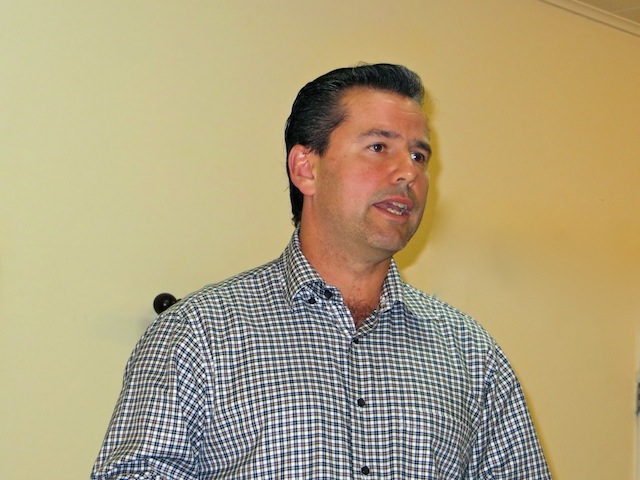
He told members that about 1/3 of the electrical demand for Vancouver Island can be produced/generated by the four plants on the island from hydro electric plants/stations but the majority of our power comes from the mainland. During the winter “peak” season the demand is about 2300 megawatts, while the summer season averages 12-1300 megawatts.
Vancouver Island has the highest tree count per kilometre of power line in North America and this is a major contributor to the problems/risk of power outages when winds and unique storms come up.
A Nanoose Bay resident and champion amateur golfer, Stephen was born in Nanaimo and attended university in the U.S. on a golf scholarship. He has worked for BC Hydro for 22 years, obtaining his Masters of Science degree in community and regional land use planning at UBC in the 1990s.
Stephen discussed the billion dollar John Hart Generating Station Replacement Project in Campbell River (which produces 126 megawatts via a reservoir system) and BC Hydro’s considerations for the environment. The focus of its redevelopment for BC Hydro (along with Rotary clubs) has been on providing a longterm, environmentally friendly source of power while being conscious about water, tree, fish and wildlife conservation. At John Hart (built in the early 1940s) they are replacing three above-ground pipelines with one main underground line. “It’s not about gaining more power”, Stephen said, “it’s about being proactive with the environmental risk assessment for the area and people”.
Another key focus area for BC Hydro is the Heber River Diversion where they are re-diverting the water back to its original flow; this will enhance the area; make the river and area more eco-friendly and allow for better overall conservation practices.
BC Hydro is 90% clean power versus Alberta which is 90% fossil fuel generated.
“Transmission lines” are gold for BC Hydro and keeping them up to/above standard, well protected, monitored and modern is essential. Upgrading of lines is an ongoing process that never stops because the demand for power continues to grow
“It is essential that BC Hydro prepares and plans for the future” he said, because ‘the future is here before you know it and the demand and conditions dictate that we remain ahead of what might happen.”